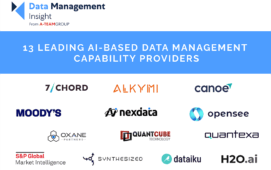
Moody’s and MSCI have bolstered their ESG offerings with a tie-up that will see them share some of each other’s sustainability capabilities in a move that’s been predicted to concentrate global ESG ratings provision.
As part of the arrangement, ratings provider Moody’s will gain access to MSCI’s data and models, which will eventually replace its own content in services offered to banking, insurance and corporate clients. That will include MSCI’s ESG ratings and scores. In return, MSCI will be able to use Moody’s Orbis database, which contains information on more than half a billion private companies.
The move has been described by the companies as groundbreaking and credit ratings specialist at Aston University, in the UK, Daniel Cash said it was inevitable that such “convergence” would happen among big players in the ESG rating and credit rating sectors.
“This is the first really important move in the related sectors together. It is an important move for the ESG rating sector specifically,” Cash told Data Management Insight, noting that Moody’s indication that it would step away from ESG ratings would increase the “duopoly in the ESG rating sector between MSCI and S&P”.
More Developments
The companies said they would also explore ways for MSCI to benefit from Moody’s credit rating scoring models for private companies: “Stay tuned for more updates,” said MSCI chairman and chief executive Henry Fernandez.
Both companies said the strategic partnership would “bring greater transparency on ESG and sustainability to markets and power better decisions”.
Moody’s is bolstering its ESG data capabilities at a time when regulators are requiring risk assessment providers to tighten the quality of their offerings and potentially to open their methodologies to public scrutiny. This comes amid accusations that opacity within ESG ratings is fuelling greenwashing.
The company already provides two ESG scores products but said the deal would not have an impact on Moody’s Ratings, its credit ratings business.
For MSCI, the deal will offer clients a portal into the increasingly important private equities and credits markets. ESG data on these companies has become a key target of financial institutions as they have diversified their holdings into alternative assets amid fluctuations in global capital markets. According to recent estimates, about a third of all institutional money is now tied into private markets.
The implementation of the EU’s Corporate Sustainability Reporting Directive (CSRD) is expected to raise the profile of smaller companies further, providing greater transparency into their ESG performances.
Earlier this year MSCI unveiled its MSCI Private Company Data Connect platform that brings together sustainability data from unlisted companies for use by private market funds and investors.
Market Implications
Cash, who predicted coalescence within the ESG ratings market in his 2021 book “Sustainability Rating Agencies vs Credit Rating Agencies: The Battle to Serve the Mainstream Investor”, said the timing of the Moody’s and MSCI announcement was significant.
“It is not coincidental that this move takes place as the EU are becoming the first major market for the agencies to actively regulate the ESG rating space,” said Cash, who is also ESG ratings and regulations lead at global law firm Ben McQhuae.
“Regulators – particularly in the EU – will need to be watching these developments very carefully because the impact and effect of duopoly on this nascent field is a significant ‘unknown’, which could have a dramatic effect down the line. As both S&P and MSCI are major providers of investment indices, this duopolistic move could have far-reaching effects.”
Subscribe to our newsletter




